When Younee sits at the piano, she doesn't see boundaries between Bach and jazz, between composed and improvised music. The South Korean pianist simply plays what flows through her in the moment. Her new double album Improvisations Live in Germany, out November 1 on Fulminantmusic, captures these spontaneous creations across German concert halls and jazz clubs, offering listeners an intimate seat at the piano bench.
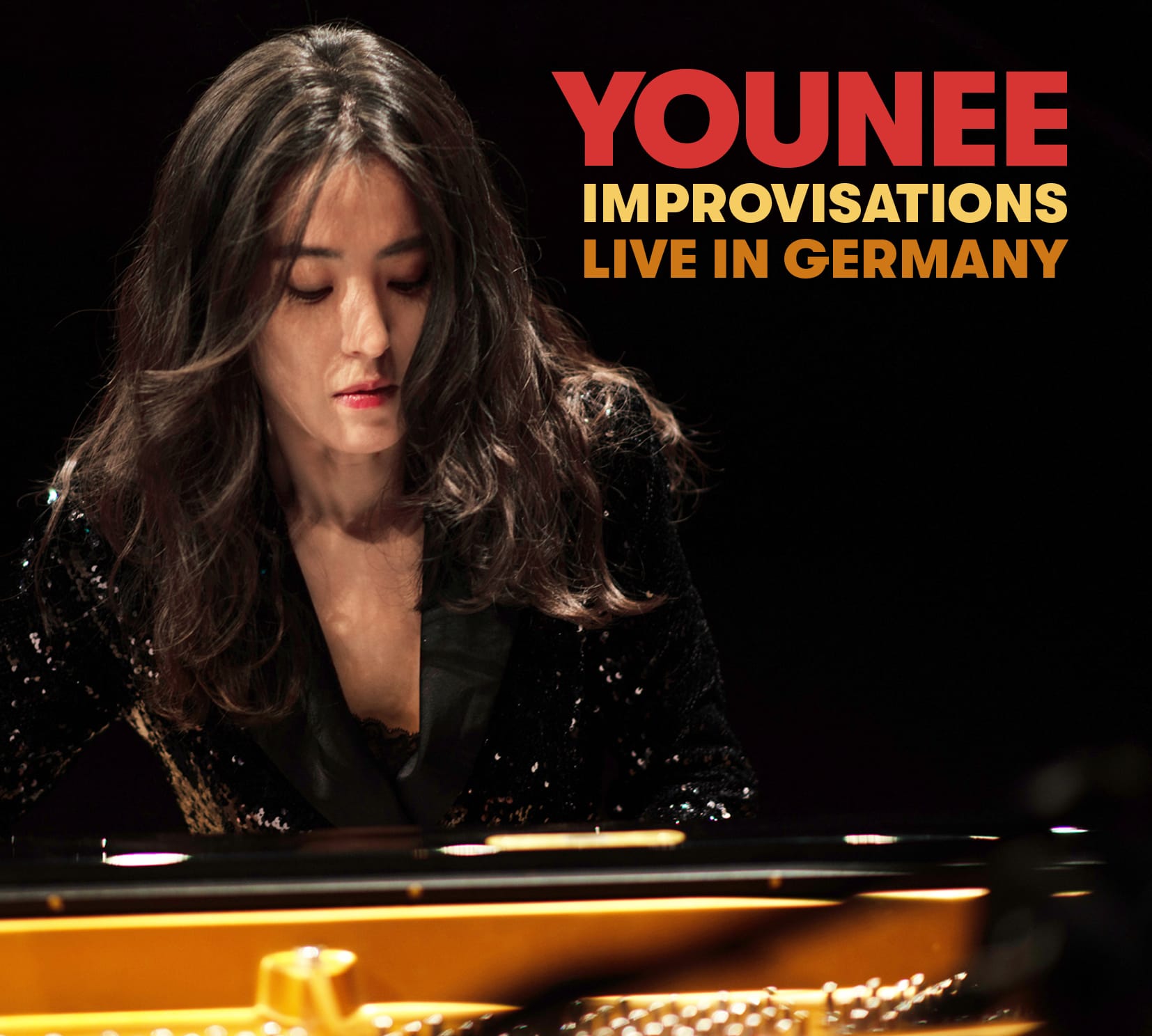
Lawrence Peryer: You've coined "free classic & jazz" to describe your style. Can you elaborate on how you blend elements from these genres in your performances? What are the key elements that attract you to the different styles of music?
Younee: Classical music provides me with techniques, intricate dynamics, various touches, and solid musical structures, while jazz brings freedom, rich harmonies, and groove. Rock adds explosive energy and rebellious spirit, funk gives groove, and other genres like electronic and tango offer sensuality. All these elements and the beauty of simple melodies found across different musical styles have influenced me deeply. When I make music, I believe all these elements blend naturally.
I never consciously considered mixing elements from different genres to create new music. Instead, the musical elements I love from various genres naturally come together when I play, forming my style. People often ask me which category my music fits into. While I want to simply say that it's just "my music," people ask these questions to understand it better. Some terms like crossover, neoclassical, and others refer to instrumental music that isn't traditional classical, but I felt those words didn't quite capture my music. Early in my career, even some journalists said that "crossover" didn't fully describe my music. So, I reflected on this, and during an interview with a German newspaper, I explained that while my musical roots are in classical, I found freedom within it, much like in free jazz. That's when I thought I could describe my style as "free classical." But because I'm open to all kinds of music, I thought the term "Free Classic & Jazz" would be more fitting. That's how this term began to define and describe my music.
Additionally, I think that how I recognize the appeal of one genre within another also plays a big role in shaping my style. For instance, I can feel the rock energy and dance-like groove in Beethoven or Dvořák symphonies. In jazz, like Bill Evans' music, I can find classical qualities similar to Chopin, and I sense classical elements in rock bands like Emerson, Lake & Palmer. I also notice how Rachmaninoff's melodies in Frank Sinatra's music can sound so jazzy. These moments of crossover discovery inspire me greatly and constantly offer me new perspectives and joy as I listen to and create music.
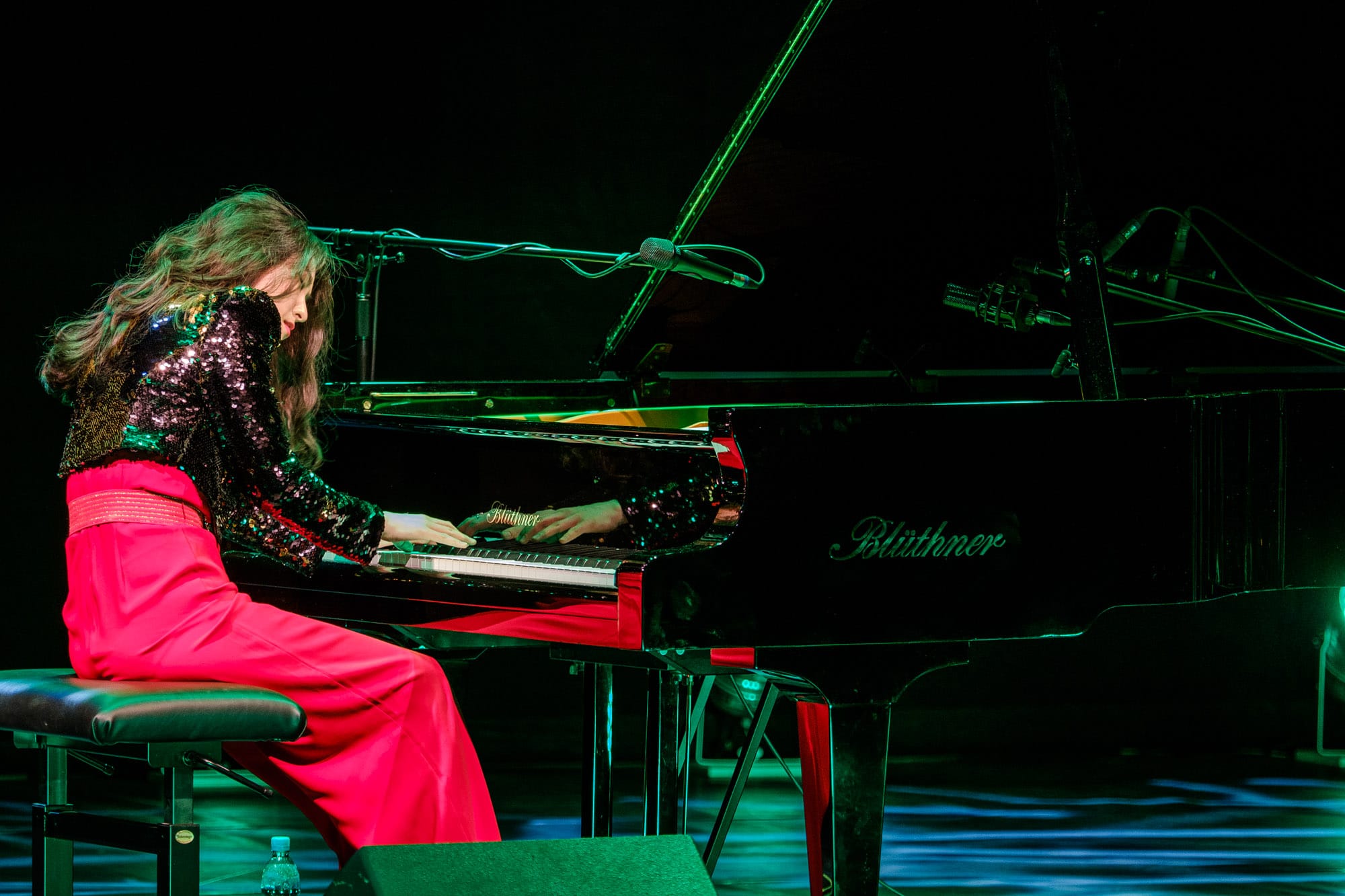
Lawrence: You have collaborated with jazz greats like Gary Husband and Nigel Hitchcock. How have these experiences informed your "free classic & jazz" approach?
Younee: The piano is a solitary instrument. I occasionally played in ensembles like chamber trios when I studied classical music. However, after releasing my True to You album in the UK, I had the opportunity to perform and record with world-renowned jazz musicians based in the UK, such as Richard Niles, Derek Watkins, Richard Cottle, Gary Husband, and Nigel Hitchcock. These collaborations greatly enriched my musical world. I even saw Jimmy Page at the 100 Club one night and interacted with many legendary jazz musicians. It was an incredibly exciting time that brought me a lot of musical growth and maturity. It was a pivotal moment that helped me break free from the stiffness in my groove and attitude, allowing me to open up and express myself more freely. It felt like I had removed the safety net and could throw myself into the music with greater abandon. That period also gave me the confidence to communicate with anyone, regardless of language, through music and melody. Working with these world-class musicians left a deep impression on me and provided immense inspiration and courage.
Lawrence: Your music draws inspiration from classical masters like Bach and Beethoven. How do you balance reverence for tradition with your drive for innovation?
Younee: My respect for tradition comes naturally from having dedicated much time to studying classical music. However, I've always believed we should create something new for the present once we learn from the past. Many figures in Korea's long history embodied this philosophy by developing new ideas from tradition, and I was deeply inspired by such individuals when studying history as a child. For instance, Beethoven and Mozart lived in their own times and created the most innovative and modern music of their era. When we look at musicians and artists from the past, we often find that their creations were incredibly innovative, even by today's standards. While I admire the music they created, I'm even more inspired by their motivations, their lives, and their spirit and philosophy. For example, Beethoven moved away from the religious constraints on music that existed before his time and held concerts purely for the sake of music itself—how cool is that spirit? I often wonder, "How did he think like that during that time?"
If people were to look back 200 years from now and ask about the musical trends of 2024, they would likely define the composers and styles of the time, just as we do today when looking back at classical music. This is why, while I have rigorously studied classical music from hundreds of years ago, I constantly ask myself how I can use everything I've learned to create something new for the present era.
Of course, composers were often the performers in the past, and performers were the composers. Still, in modern times, those roles have become more separate, particularly with the advancement of recording technology. Nevertheless, I believe art expresses the human heart, whether through painting, music, or dance. Therefore, I've been exploring how to create my unique voice, drawing from the beauty and virtues I've learned from classical music.
When we learn to paint, we are not told to simply copy someone else's work; instead, we are encouraged to express what we see, feel, or imagine. I've always approached music in a similar way, even though no one has ever asked me to explain it like that.
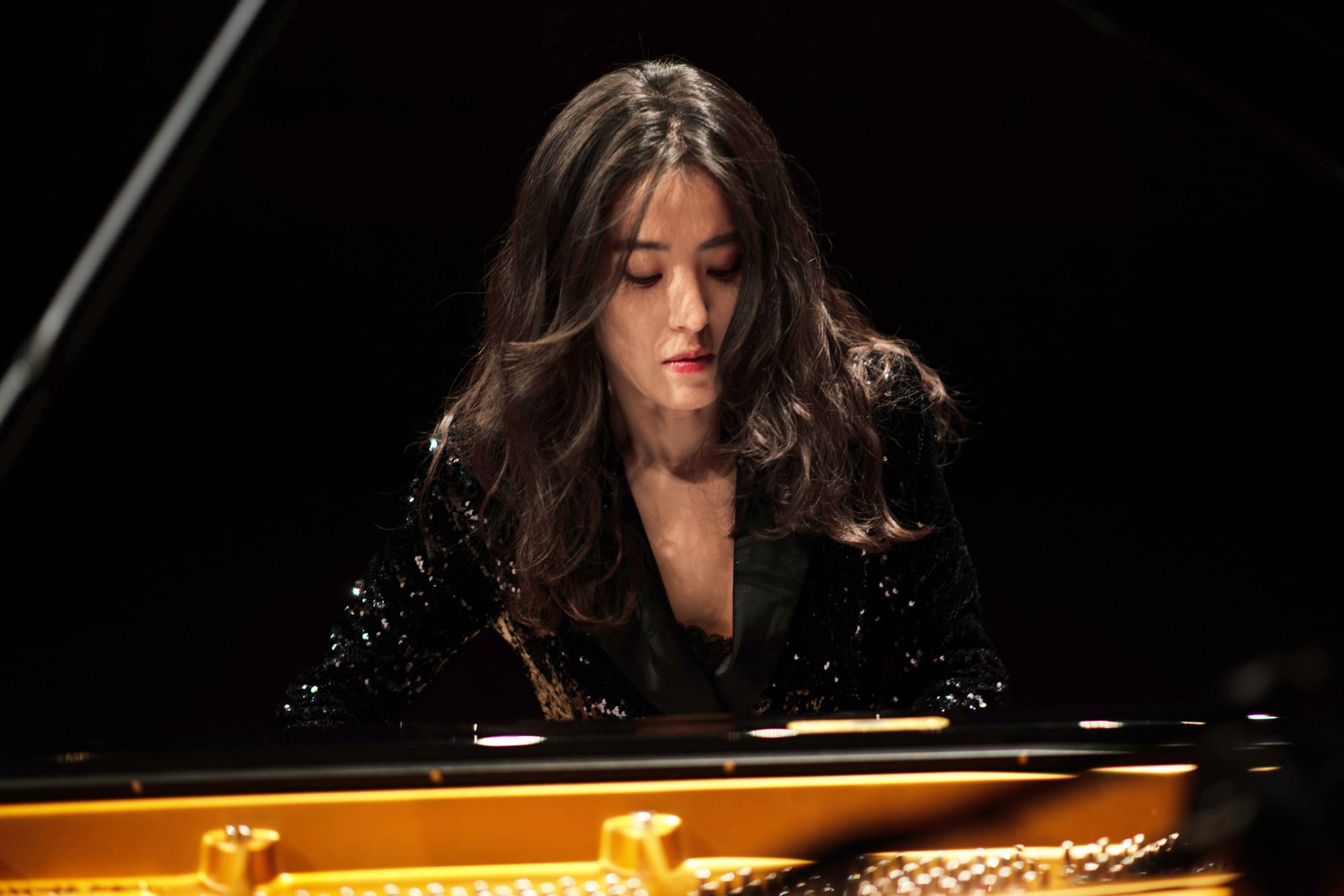
Lawrence: You've mentioned elsewhere that the piano is more a partner and friend than an instrument. How does this relationship influence your compositional process?
Younee: Just as I write in a journal with a pen to express my thoughts, I use the piano to express my feelings, recording them as I play. This allows me to remember exactly how I felt and the state of my mind at that time. The process is natural and comfortable, so it's my favorite time. Sometimes, when I place my hands on the piano, beautiful melodies or ideas flow almost unconsciously from my head or my hands. At times, a melody will suddenly come to me from an intro I play, or I'll sit at the piano with a melody or rhythm running through my mind, and when I play it, I think, "Ah! This is it." It feels like the piano, and I am always connected.
Lawrence: Your upcoming album, Improvisations Live in Germany, showcases your gift for free improvisation. How has your approach to improvisation evolved since your earliest days of composing melodies?
Younee: My feelings then and now are always the same—it's like something is bubbling inside, a sense of longing or thirst. When I was five, I only had a toy keyboard at home, so I had to wait until kindergarten to play the melodies I had in my head. But the keyboard was too small, with only a few keys, so I couldn't play all the melodies I imagined. I had to use my breath to play, and after just a few minutes, I'd get so hungry and dizzy. So, I drew an 88-key piano on a long piece of paper and colored each key in different shades, practicing by imagining the sounds in my head. It was so frustrating! Eventually, my parents bought me a real piano; from then on, I could try out what I imagined. Although my musical knowledge was much more limited back then, I would still play with melodies, changing my left hand this way or that, adjusting the rhythm, always treating music as play within the limits of what I knew. And that feeling hasn't changed at all.
I also learned a bit of flute when I was younger, but I lost it on the school bus one day and couldn't continue. Before losing it, I would record the piano accompaniment without the melody on one Walkman. Then, while playing that recording, I would play the flute melody with it on another Walkman—often while sitting on the roof! It was like a kind of multi-tracking. I remember wishing I had 10 Walkmans back then. Now, of course, I can record much more easily, and I have more musical knowledge, which allows me to try out my ideas in a richer, more comfortable way. But fundamentally, my state of mind is the same as it was back then.
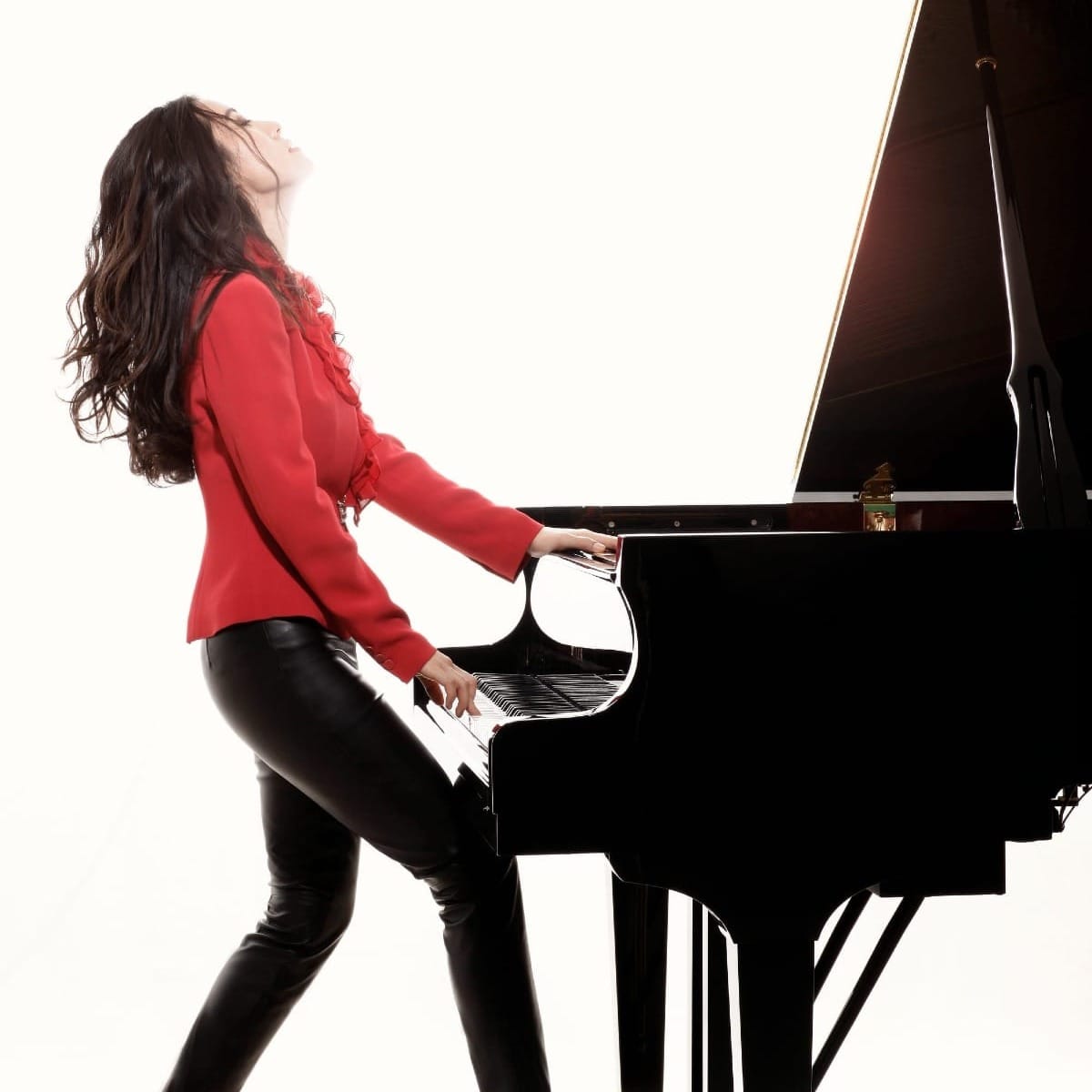
Lawrence: The "Frühling (Spring)" track was born from an audience suggestion at the Elbphilharmonie. How do you prepare mentally for such spontaneous creation? Do you have musical or other practices that prepare you? How do you cultivate these skills off-stage?
Younee: I always try to keep myself open and be the kind of person who can get excited by even the smallest stimuli. Music comes from the heart, after all. That's why I take a lot of walks, and even if I walk the same path every day, I try to discover something new each time. Walking the same path and seeing the same things over and over would be so boring, right? So, finding and trying something different from what seems to be the same helps me approach music in a similar way. I think that's where my strength comes from in keeping things fresh in my music.
Before a performance, I don't rehearse too much. I do a sound check with the piano and the space, but avoid exhausting myself or over-practicing. Just like fresh fish must be eaten raw to make the best sashimi, I feel that preparing too much in advance can take away the freshness of the moment, and I might rely on rehearsed patterns during the performance. I always aim to keep my mindset fresh and new.
I try to prepare my mindset and mental state in a way that allows me to fully immerse myself in the unique energy of that specific day and place. Since every concert hall and city is new to me, I focus on tuning into the people, the atmosphere, the air, the special qualities of that location, the local dialect, the food, the piano, the sound of the hall, and everything that has happened that day. I raise the frequency of my internal radar to absorb it all so it can come out naturally and unconsciously during the performance.
Lawrence: "Cuba," recorded in Nuremberg, evokes Havana despite you never having visited. How do you capture the essence of places or cultures you haven't experienced firsthand?
Younee: When I look at paintings, watch movies, read books, or watch documentaries or the news—any kind of indirect experience—I try to feel it very deeply. I also dream a lot, and whenever I wake up from a dream, I make sure to write it down in a dream journal before I'm fully awake. This way, I try to observe what I see in my subconscious more closely. Doing this allows me to hear the sounds better and visualize the scenes from my imagination. For example, I once had a dream where I experienced something frightening in a desert, a place I've never actually been to. But because the experience in the dream was so vivid and intense, I felt like I had truly been there, even though I've never visited a desert. Of course, the reality might be different if I went, but the dream felt real enough.
The piece "Cuba" was composed during a performance in Nuremberg, Germany, in a venue with an exhibition of beautiful vintage classic cars. The stage was set right in the middle of them. I asked the audience for a suggestion for the theme of the composition, and someone shouted, "Cuba!" I wondered why, and they said the classic cars made them think of it. I thought it was a great idea, and suddenly I felt so excited. The image of a town in Havana full of classic cars popped into my mind, and the groove of the piece came to me. It was as if joy was bubbling up inside me all at once.
I also know of a famous painter who painted jungles without visiting one. When I performed in Stuttgart, someone suggested the jungle as the theme for an improvisation. I thought, "Well, I only know the jungle from The Jungle Book, but I'll just imagine it and play based on what I've seen." In a way, it's like going on an imaginative journey through music.
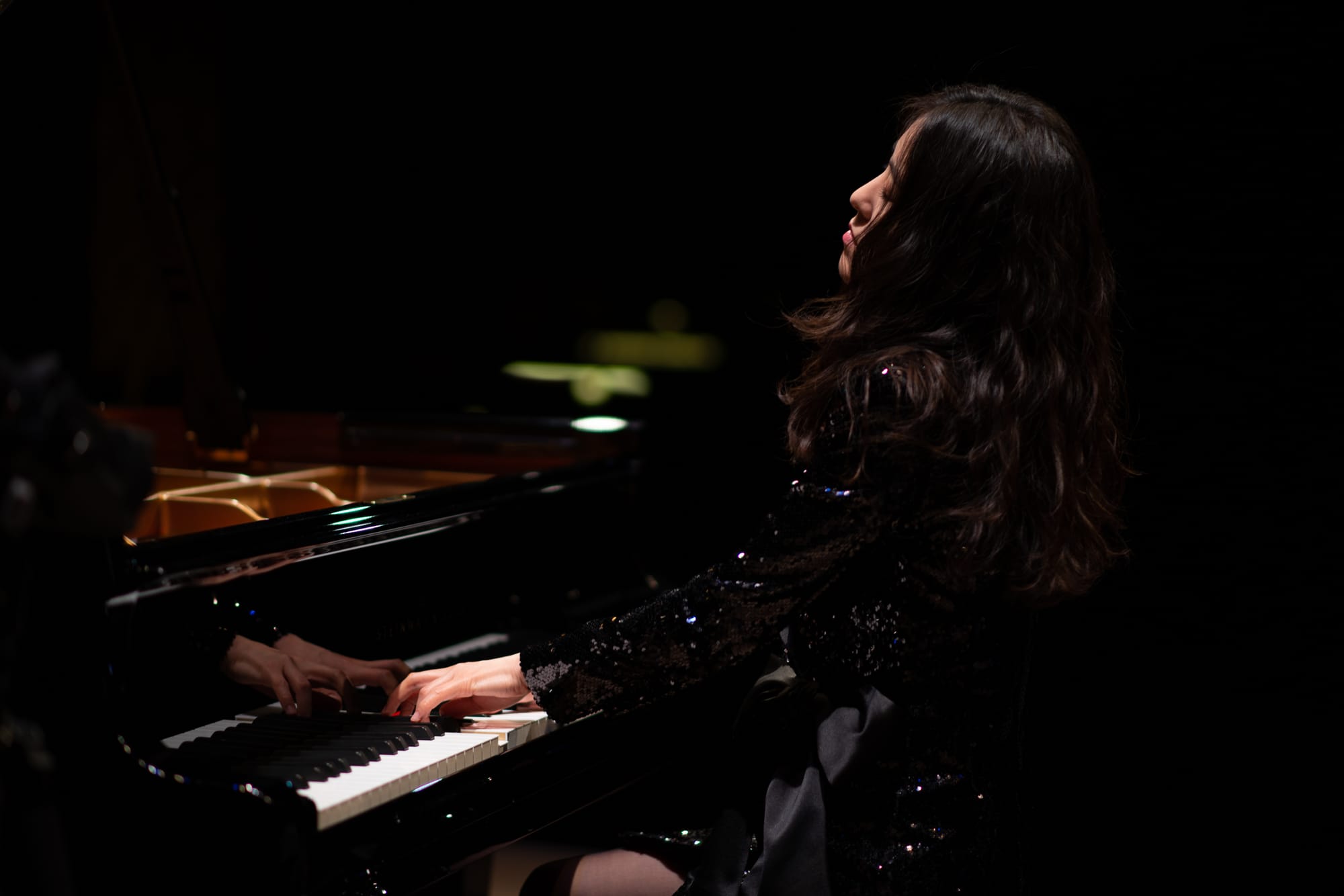
Lawrence: The track "Lefthand Improvisation" points to new playing techniques. What recent technical innovations have you incorporated into your work?
Younee: This piece wasn't born out of an intentional effort to create a specific playing technique. At the time, my right hand was in so much pain—it was experiencing every possible issue a hand can have. I was performing at the Palatia Jazz Festival, but my right hand hurt so badly that I couldn't even place it on the keys. The venue was a famous cathedral known for its incredibly long reverb, a sound that can only be heard in a space like that. So I thought, "Why not try playing with my left hand and jam with the cathedral's long echo?" That's how I improvised a piece with a deep sense of space but still with a groove in sync with the vibration and speed of the reverb. Ultimately, the piece was born because my hand was in pain.
Later, I discovered that the composer Scriabin had also written a piece for the left hand because his right hand was injured. Moments like these, where life's challenges arise, often become great material and inspiration for creating new music.
Lawrence: Your album uses a special microphone technique to place listeners at the piano. What is the significance for you? How important is the audience's perspective in your live performances?
Younee: In my performances, the audience is not just passive observers watching me. Sometimes, I invite them directly into the creative process. During live performances, I often ask the audience, "I'm about to improvise a new piece—what theme should I compose on?" This way, the audience actively participates in my moment of creation. That's also why I wanted the sound on this album to reflect a first-person perspective rather than a spectator's. I wanted to record the piano sound as if the listener were sitting on the piano bench, feeling the immense power, direct contact, volume, and wide stereo effect I experienced.
The reason is simple: a performance has no meaning without the audience. I want to create something new with the audience and share that incredible moment. That's how I view my performances. While one important aspect of a performance is presenting a piece I've composed and practiced thousands of times to perfection, I see my performances as a simultaneous process of creation and expression—a shared experience of discovering something new, something unexpected, right at that moment.
When I'm surprised by something during the performance, the audience shares that new experience with me, and together, we create unforgettable memories. That's how I see my relationship with the audience, and it's why I recorded the album this way.
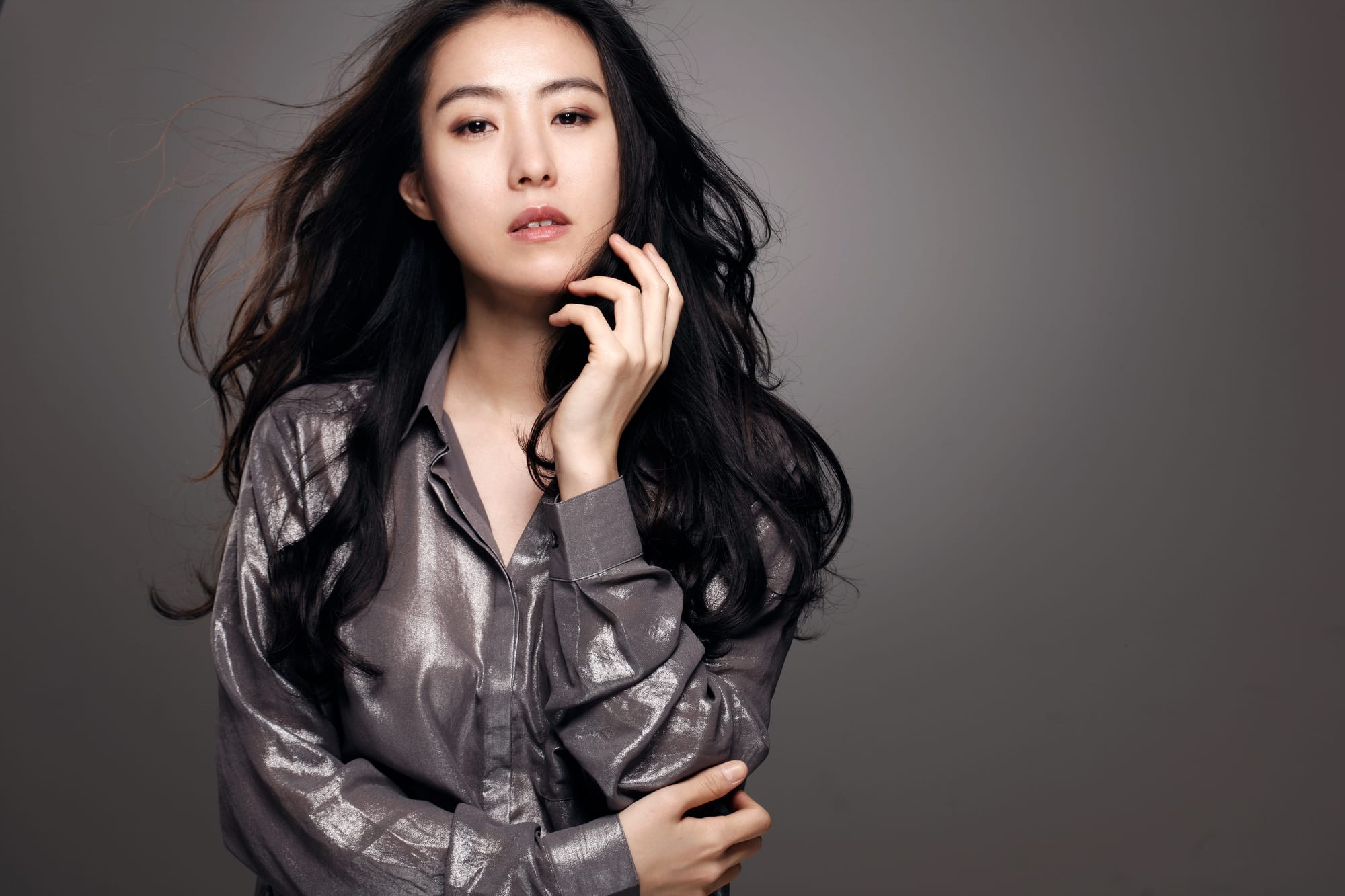
Lawrence: You've transitioned from pop stardom in South Korea to your current artistic path. How has this journey shaped your musical identity?
Younee: To me, whether it's pop or classical, singing or piano performance, it all feels like just music. However, the world tends to divide everything into categories—singer versus pianist, instrumental music versus vocal music, "E music" versus "U music," jazz versus classical, and classical versus pop. I've wondered whether I should participate in these classifications to help people understand better. But ultimately, what stays with people is simply good music. A melody that's loved everywhere, whether it's classical, a vocal piece, pop, or an instrumental track, carries a certain magic that we can't fully explain. That's why I love all kinds of music.
For this reason, my time working in pop music doesn't feel like something distant or separate to me. However, suppose I were to think about what I gained from that experience. In that case, it's the ability to convey a complete story to people within three to four minutes, which taught me the power of melody and strengthened my melodic abilities. It also showed me how important communication with the audience is in music.
After all, pop music is also called popular music, and I believe that without an audience, any genre of music would feel lonely and empty. For me, music is about connection and communication.
Lawrence: As someone who has found success across different musical cultures, what advice would you give to artists looking to bridge cultural or genre divides in their work?
Younee: If you deliberately try to cross a line, it becomes a boundary. But if you approach everything in an integrated way, those boundaries naturally disappear, and something new and unique to you emerges. So, whether it's art or music outside of your field, or even other areas like humanities, technology, science, or philosophy—if you stay curious about everything happening in the world, the sounds, and the stories of people, you will one day find yourself crossing those genre boundaries without even realizing it, reaching a new creative space.
Check out more like this:
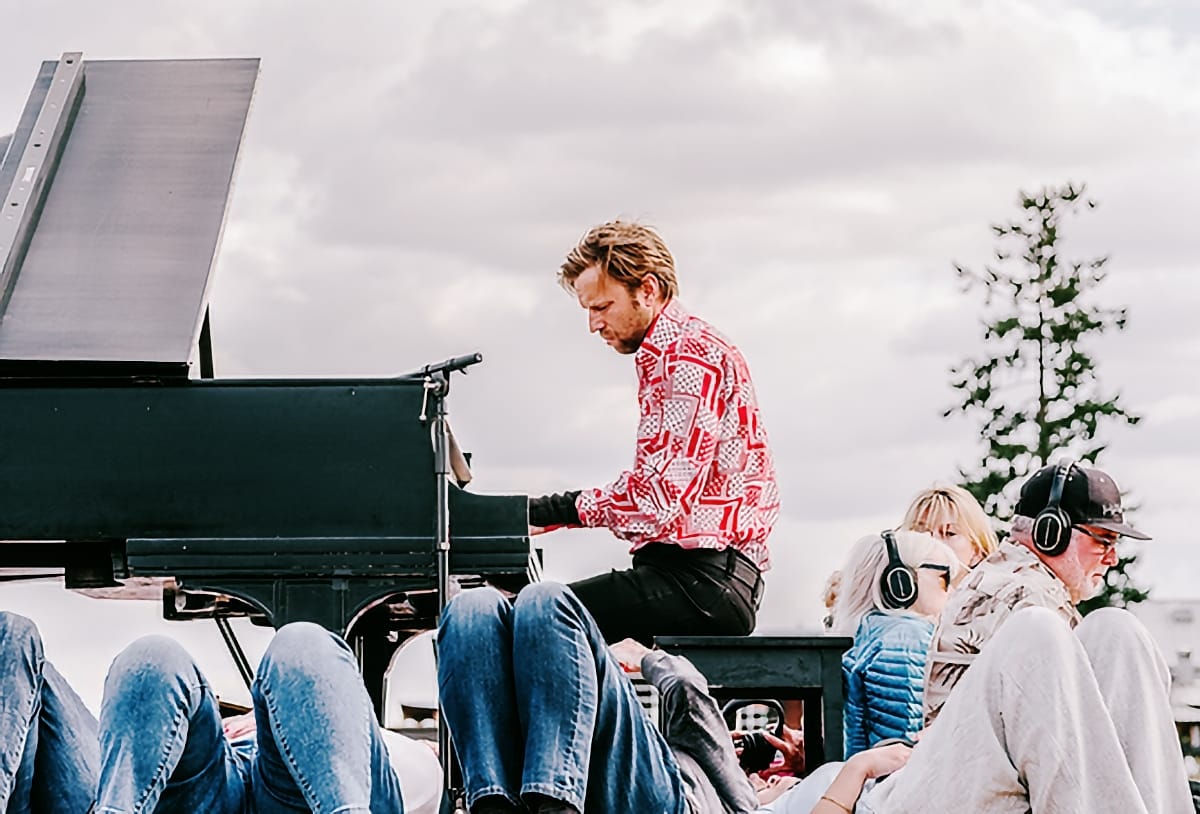
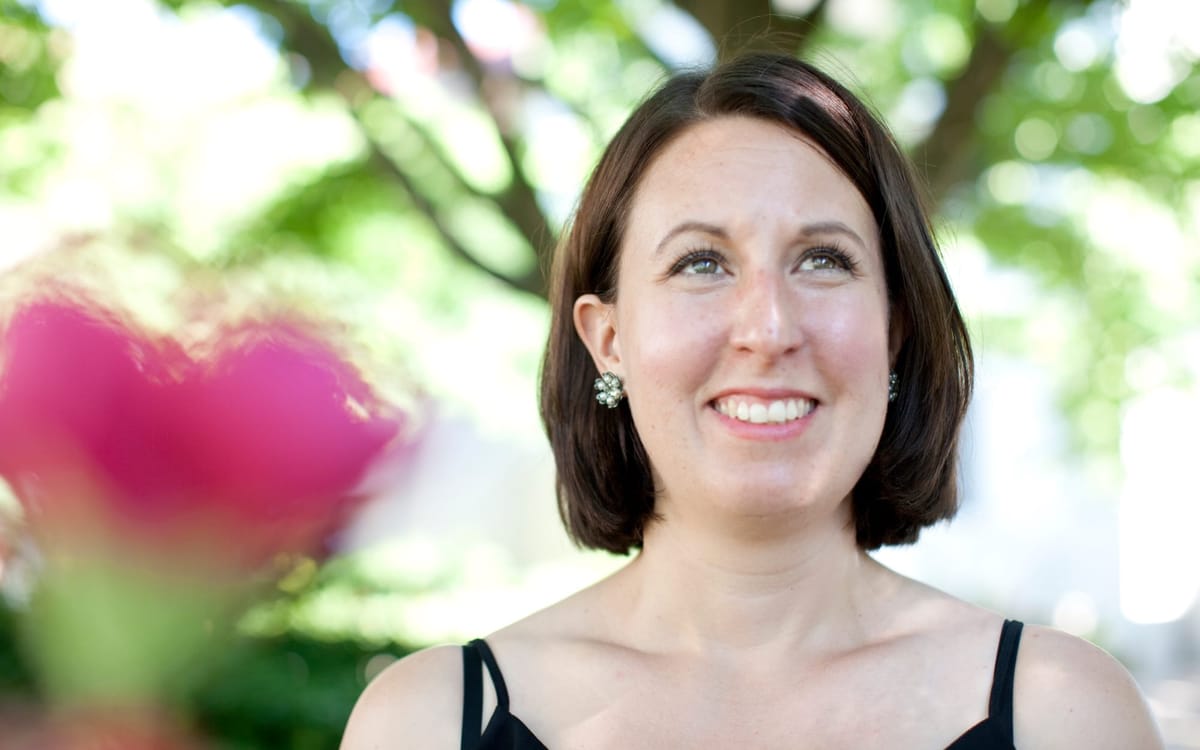





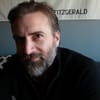



Comments